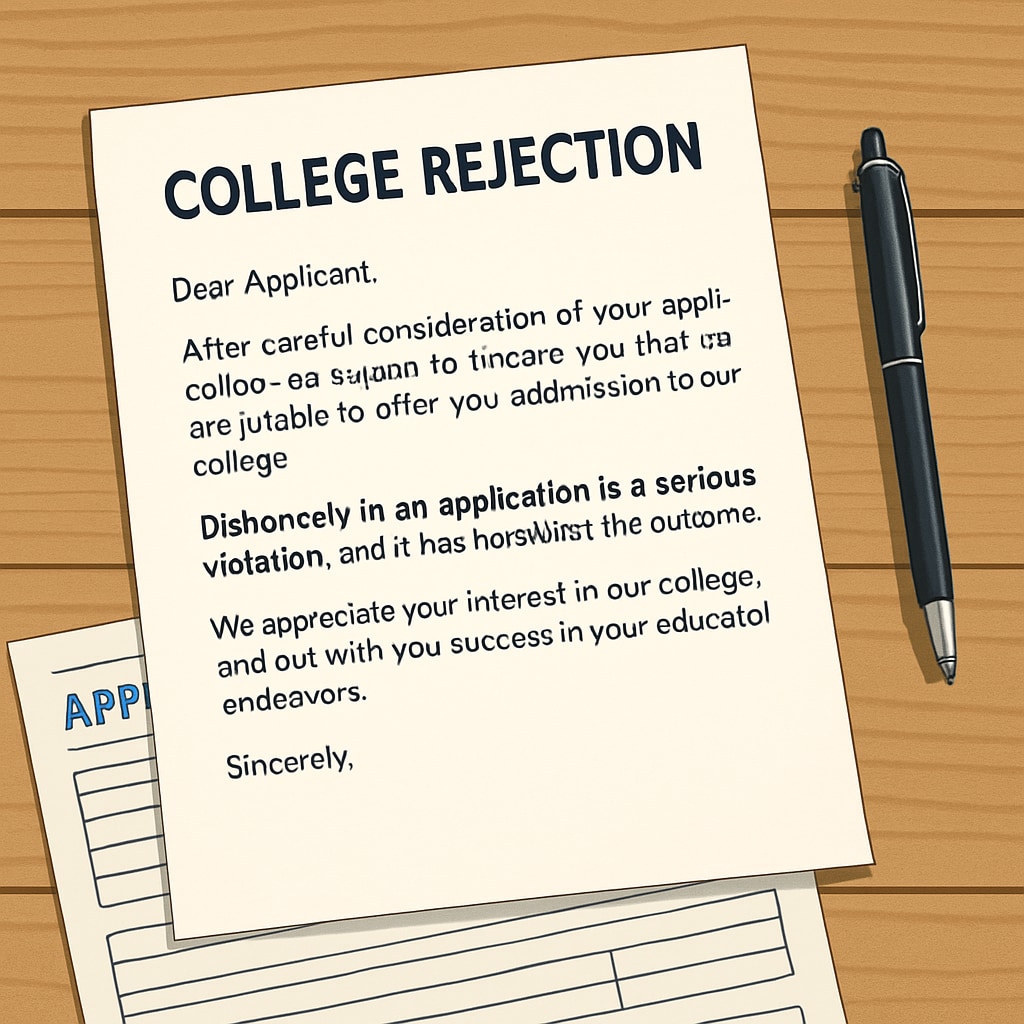When it comes to college applications, the pressure to stand out can sometimes tempt students to stretch the truth. However, dishonesty in this process—whether by embellishing achievements, exaggerating extracurriculars, or submitting fraudulent materials—can lead to devastating outcomes. The risks of “polishing” one’s application extend far beyond the admissions process, potentially damaging a student’s reputation, academic career, and future opportunities. In this article, we will explore the ethical dilemmas students face, examine the consequences of dishonesty, and highlight why integrity remains a critical cornerstone throughout life.
The Temptation to “Polish” Applications
The competitive nature of college admissions often pushes students to go to great lengths to make their applications stand out. For example, some students may inflate their leadership roles in clubs, falsify volunteer hours, or even hire unethical services to write essays or fabricate awards. While such actions might seem like a shortcut to success, they come with significant risks. Colleges and universities have become increasingly vigilant in identifying fraudulent applications, employing advanced tools and strict verification processes.
Furthermore, the pressure to succeed at any cost can stem from societal expectations or parental influence. Students might feel that failing to meet lofty standards will disappoint those around them. However, sacrificing integrity for short-term gains can backfire in unexpected and irreversible ways.

The Consequences of Dishonesty in College Applications
The repercussions of lying on a college application can be severe, ranging from immediate rejection to long-term damage to one’s academic and professional prospects. Below are some of the most common consequences:
- Application Denial: If a college discovers discrepancies in a submitted application, they may reject it outright, even if the student is otherwise qualified.
- Revocation of Admission: Students who are caught post-admission may have their offers rescinded, leaving them without a clear path forward.
- Damage to Reputation: Academic dishonesty can tarnish a student’s reputation, making it difficult to gain acceptance elsewhere or secure professional recommendations.
- Legal and Financial Ramifications: In extreme cases, submitting falsified documents can lead to legal consequences or the loss of scholarships and financial aid.
For example, in 2019, the “Varsity Blues” college admissions scandal brought widespread attention to the consequences of fraudulent applications. Several high-profile individuals faced legal action, and their children’s academic futures were jeopardized. While such cases are extreme, they underscore the importance of honesty in the admissions process.

Integrity: A Lifelong Asset
Beyond the immediate consequences, dishonesty in college applications can have far-reaching effects on a student’s character and future. Integrity is not just a requirement for admission—it is a fundamental value that shapes personal and professional growth. Employers, graduate schools, and other institutions often value ethical behavior as much as academic or professional achievements.
Moreover, the habit of cutting corners can lead to a pattern of unethical decisions in other aspects of life. By prioritizing honesty during the college application process, students lay the groundwork for a future built on trust, respect, and self-confidence.
How to Stand Out Without Compromising Integrity
Students often wonder how they can make their applications competitive without resorting to dishonesty. Here are some ethical ways to stand out:
- Highlight Genuine Achievements: Focus on accomplishments, no matter how small they may seem. Authenticity often resonates more than exaggerated claims.
- Craft a Compelling Personal Statement: Share unique life experiences, challenges, and perspectives to demonstrate individuality and resilience.
- Seek Guidance: Consult with teachers, counselors, or mentors for advice on how to present your strengths effectively.
- Invest in Self-Improvement: Instead of fabricating achievements, pursue meaningful activities and projects that align with your interests and goals.
By adopting these strategies, students can create strong, authentic applications that reflect their true potential.
Conclusion: The High Cost of Dishonesty
The college application process is undoubtedly stressful, but the temptation to cheat is never worth the risk. Dishonesty in college applications can lead to severe consequences, from immediate rejection to long-term damage to one’s reputation and career. More importantly, integrity is a lifelong asset that extends far beyond the admissions process. By choosing honesty, students not only increase their chances of success but also lay the foundation for a future defined by trust and respect.
Ultimately, the true “price of integrity” is the commitment to doing what is right, even when it is difficult. It is a choice that pays dividends throughout life, fostering personal growth, professional success, and meaningful relationships.
Readability guidance: The article uses short paragraphs, lists to summarize key points, and transitions like “however,” “for example,” and “in addition” to improve flow. Passive voice and long sentences are minimized.


